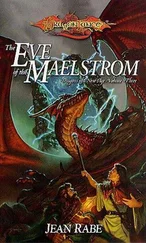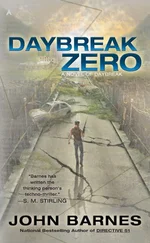He had scarcely finished when a return signal came from Sidi Bel Abbes. Gallast grabbed a pencil and took down the Morse. Then he transcribed it from the cipher key.
Please repeat from word ‘ garrison’ . Last part of message not received clearly .
Gallast referred to his original coding and sent out the repetition.
There followed twenty minutes of silence, save for the static from the earphones.
Then, after the usual preliminaries, Sidi Bel Abbes said: Explosion will take place as planned at exactly 15.00 hours , July 8. Follow previously issued safety instructions exactly . Bon chance .
Gallast was breathing almost as heavily as Daak as he switched off. But he was smiling.
“At 22.00 hours tonight,” he said, “I will destroy this radio set. There may be a test signal from Sidi Bel Abbes after that time to see if the place has been evacuated. They must be convinced that it is so. There must be no chance whatever of their picking up an answer.”
Daak said: “Who would do that? You’re the only one who can work the set?”
“I know that. But some fool might come in here and switch on. If that happened, the High Command station could get an answering beam. I insist on absolute safety.”
But Daak made no comment. He had closed his eyes behind his pince-nez and was rapidly falling into a heavy doze.
Gallast put on his out-moded pith helmet and went into the glaring heat of the compound. It had changed vastly in the past few days. Beneath the south ramparts more than a score of curiously designed instruments had been assembled under Daak’s supervision. Some of them were linked to powerful high-tension batteries. All were enclosed in thick metal cases which had been cemented into the ground. The legionnaires were providing additional protection by filling sandbags and placing them round the base of the instruments.
In a sense, Gallast had been relieved by the way the garrison had worked. Even after the example of Legionnaire Paffal, he had expected to have to deal with other rebellious incidents. But there had been none. The garrison had done as they were told. Sullenly, of course. But competently. They had not even answered the screeching vituperations of Daak.
Which, perhaps, was odd… Gallast had an uneasy feeling that they would try something soon. Time was running out, and he could scarcely expect nearly thirty tough soldiers to accept their ghastly and humiliating fate without some show of resistance.
Still, he was ready for it, Gallast told himself. His men would know how to handle them.
He approached Lieutenant D’Aran who, because his shoulder had not yet healed, was engaged in the comparatively light work of knotting the tops of the sandbags. There was, he decided, no reason for refusing D’Aran the final details. Gallast had a precise sense of fairness.
“You know the date, lieutenant?”
D’Aran straightened. He seemed to have become thinner in the recent days. Those premature lines had deepened at the corners of his mouth. There was a sense of strain about him. Like a spring waiting to be released. He nodded at Gallast, but did not speak.
“It is today that you were due to quit the fort. I have just had a radio exchange with your High Command and I’ve told them that you are leaving to plan.”
D’Aran showed a faint flash of expectancy. Gallast detected it. He said: “No—there’s no cause for hope there, lieutenant. The High Command did not suspect that anything is amiss. I took the greatest care. I studied copies of previous messages so as to get the correct style— though it is not very different from our own. And, of course, I used your invaluable cipher book.”
“It’s very interesting. But why are you telling me this?”
“Because soldiers about to die are entitled to the last relevant details, even though they don’t always get them. It only remains to tell you that we will not leave the fort until two o’clock tomorrow afternoon. Your own evacuation schedule was based on the assumption that you would be marching. We can afford to linger a little longer because we will travel on horseback.”
It may have been to cover a dangerous show of emotion that D’Aran said: “It will be the end of a dirty piece of work… monsieur .”
The use of the civilian form of address was a calculated affront.
Gallast tensed.
“I do you the courtesy of addressing you by your rank. Please do the same for me! I am Colonel Gallast.”
D’Aran smiled. Then, with studied deliberation, he turned his back and continued work on the sandbags.
When Gallast had gone, D’Aran beckoned to Keith. As Keith was ostensibly preparing to drag a laced sandbag away D’Aran, whispered: “They leave tomorrow afternoon! For us, it is tomorrow morning—or never!”
* * *
“Speaking in broad terms,” General Jonot boomed, I would say that we have fulfilled the trust placed in us. I have just finished examining the final survey reports from Zone Zero and I find them satisfying. There is no indication of activity by hostile agents. And, I am delighted to say, there has been remarkably little trouble with the Arabs…”
He glanced round the group of operational staff officers until he detected the elderly and faded colonel. Jonot directed an accusing glare in his direction.
“You, colonel, will be particularly interested in this. I recall that when we met a fortnight ago you foresaw much trouble with the native populations.”
“I still foresee it, man generale . The enforced evacuation must have caused a great deal of ill-will.”
He waved his copy of the survey report and added: “There has been some trouble with the Arabs in each command area of the Zone, according to this…”
“Except in the Fort Ney area.” The colonel gave a puzzled nod.
“ Oui , I see that Fort Ney sent a signal this afternoon reporting that the evacuation has gone to plan. They make no mention of meeting any hostility. I’ll admit I’m surprised. I can see no reason why the Fort Ney area should differ from the others.”
Jonot fumbled in his despatch case. He produced and consulted the trooping schedule.
“Fort Ney,” he announced with some drama, “is commanded by a Lieutenant D’Aran. That name may be worth remembering, gentlemen. D’Aran is obviously a highly competent officer. I will congratulate him personally at the earliest opportunity. It has always been my policy to encourage those who carry out their orders with imagination and ability… that brief, succinct message we received from him this afternoon reflects a clear mind working with smooth efficiency. One or two senior officers here might study Lieutenant D’Aran’s methods with advantage, for I have always said…”
The general was enjoying himself.
And his operational staff suffered in respectful silence.
D’Aran did not sleep that night.
He writhed against his bonds like a man in a fever. His mind was a hot tumult. He tried to calculate the diminishing hours to dawn. But he had lost all sense of time. There was only blackness. Only the night was real. The night and the fear which stalked within him.
Supposing they failed?
But they were almost certain to fail! It was not really a plan they were going to put into operation. It was a mad tilt at the wheel of chance. A gambler’s last throw against odds of a thousand to one.
It all turned on at least one gun and an extra clip of ammunition. One was as important as the other. A Luger alone, holding a mere ten rounds, would be next to useless. Those additional cartridges were essential;
But would they get either?
Читать дальше












